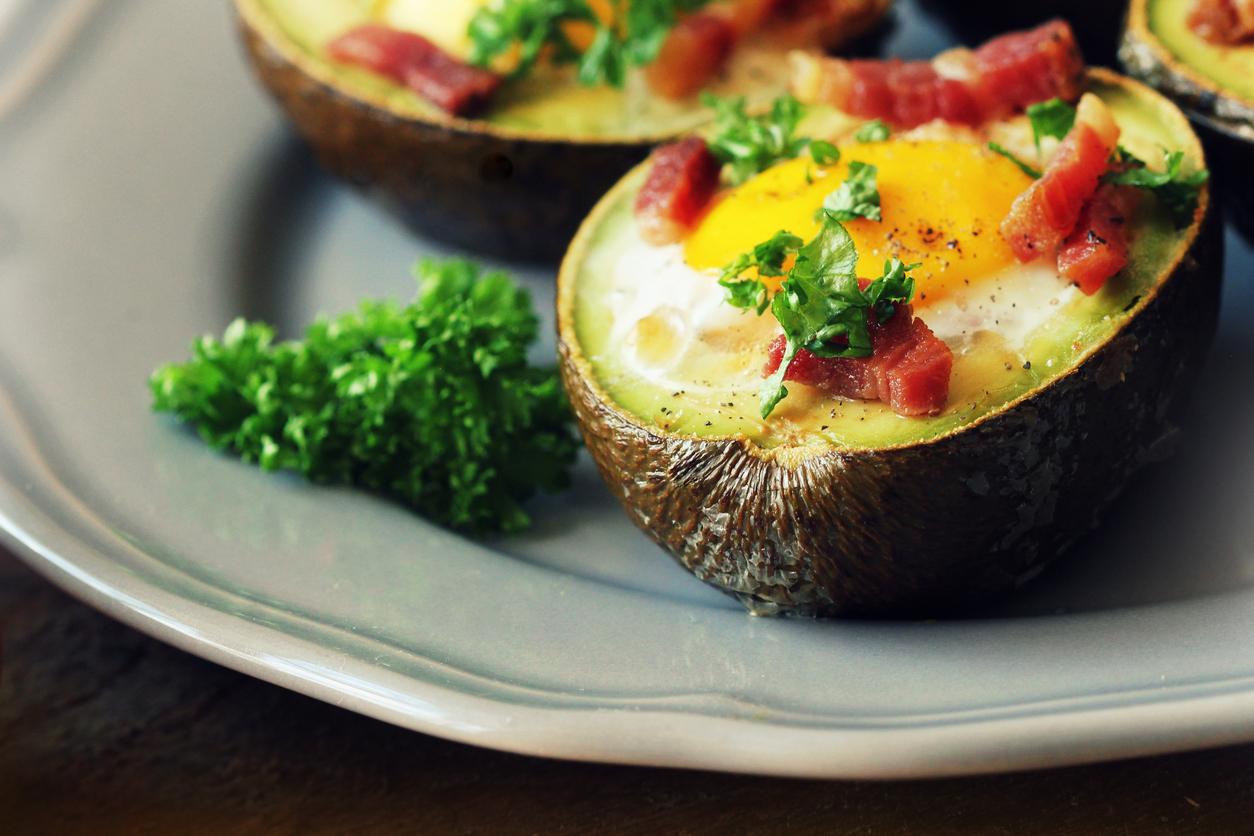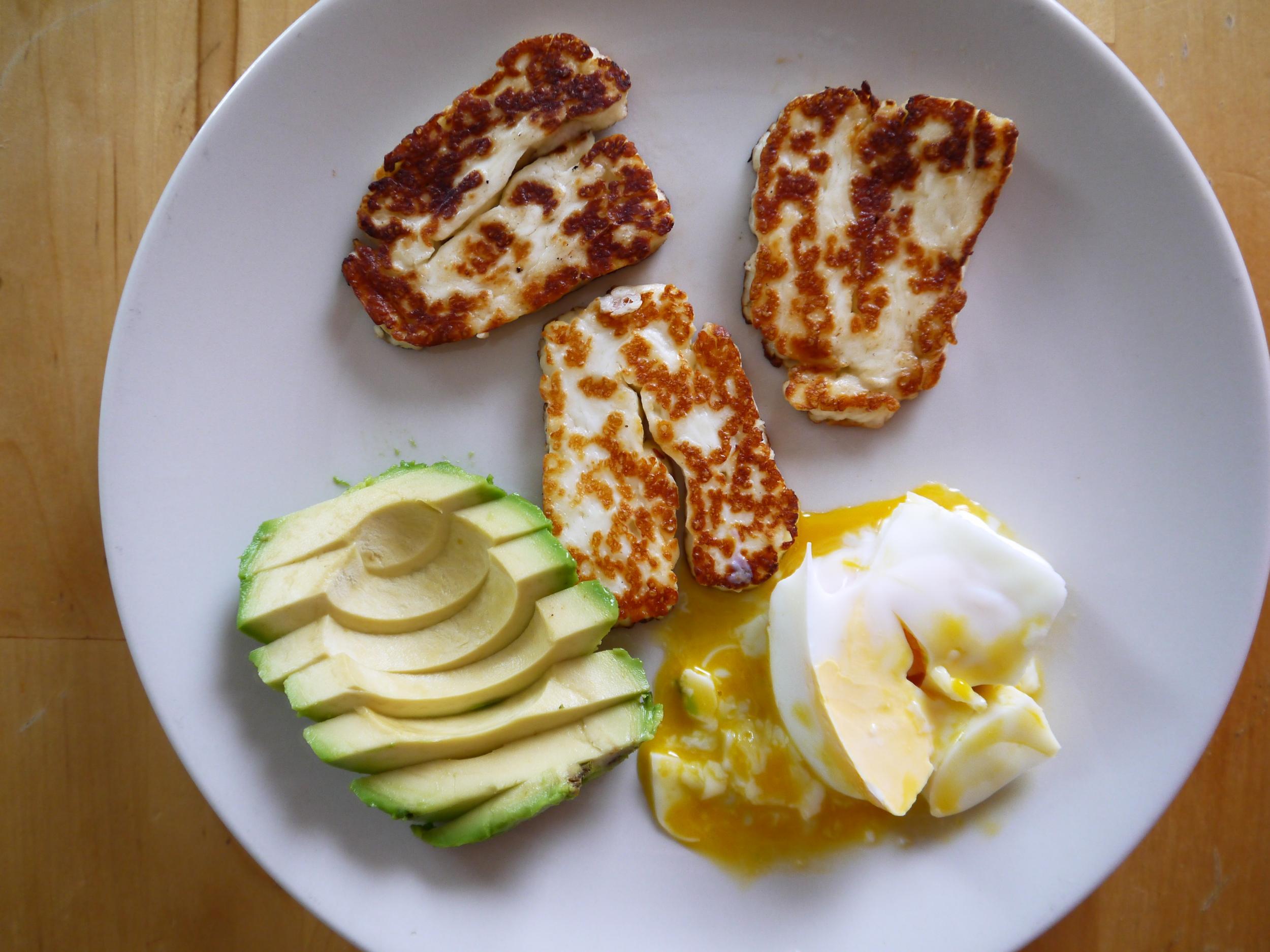Is a high-fat diet the secret to burning fat?
Eat fat, get thin?

Butter, double cream, avocado - some of the richest, most delicious foods in the worlds are also the highest in fat.
But does that also mean they’re the most fattening? According to current wisdom, no.

This is a stark contrast from the consensus of even just 10 years ago, when we were all told to shun fat and supermarkets responded with shelves upon shelves of fat-free products.
In fact, the NHS still warns against having too much saturated fat in your diet because it raises cholesterol levels which can cause heart disease - the UK guidelines are no more than 30g saturated fat per day for men, and 20g for women.
But this seems to be behind recent research and current trends - sugar has replaced fat as public enemy number one, and we’ve realised that all the fat-free and low-fat products we’d been consuming were laden with the sweet stuff to make up for the lack of fat.
And so fat is back in vogue. However there’s also the risk that people will interpret this as meaning they can add an avocado to every meal and expect the pounds to drop off - that won’t happen.
More and more health experts are advocates of high fat diets, and one of those is Zana Morris, author of The High Fat Diet.
Morris also runs three boutique gyms in London - The Library, The Clock and The Little Library - and she told me she could transform my body in just ten days if I followed her high-fat diet and worked out in the right way.
So I decided to try it out.
The rules of the ten day high-fat diet
The plan is basically super low-carb, supposedly medium protein (although it seemed quite high to me) and high fat. It was not going to be easy.
On my plan, I couldn’t eat any sugar or sweeteners, milk or yoghurt, fruit, bread or pastries of any kind, potatoes, pasta, rice, vegetables of any colour except green or white, sauces (except pesto and guacamole) or nuts (apart from walnuts and pine nuts).
Alcohol and all soft drinks apart from water were, of course, off the table too.
So what could I eat? Avocados, cream cheese, double cream, butter, coconut cream, all meats and fish (that don't have anything added), all green vegetables, nut oils, pesto, eggs and some cheeses (not the carbier ones like cheddar).
A food must contain 70 per cent of its calories from fat and have low carb levels to be considered fat on the plan, so feta, for example, counts as protein not fat.
I was meant to have up to 40g protein and at least 70g fat at breakfast; lunch would be 120g protein max, 70g veg max and 85g fat minimum; and for dinner, up to a sizeable 240g protein, 75g veg, and a minimum of 85g fat.
“It’s not a starvation diet,” Zana told me, but if I’m not hungry I shouldn’t eat. In fact, she said many people drop down to two meals a day because what they’re eating is so rich and filling. I’d be eating more calories than before, but supposedly losing weight. It sounded too good to be true.
Zana also warned me, however, that with this diet, cheating just a tiny bit could ruin everything. Gulp. So not even a sneaky mouthful of bread then? Or a splash of milk in my tea? Nope.
The reason for this is that even the tiniest morsel of sugar can offset everything and stop your body burning fat for a few days. I had been warned.
It’s not a fat free-for-all either, sadly. Off the menu are man-made trans fats (eg. margarine), oxidised fats (eg. a packet of butter that’s been opened and sitting in the fridge for weeks), vegetable oils and non-organic fat sources.
How does it work?
Zana says that by eating fat and practically no carbs, my body would burn fat - she likened it to adding logs to a fire to make it burn more. Eating fat doesn’t trigger a rise in insulin in the body (like sugar does), so your body stops burning insulin as fuel.
This is where your body switched to a state of ketosis - yes, there are similarities with the currently very trendy keto diet - with the body turning to fat stores for energy.
Fat is also incredibly satiating. When most people embark on a low-fat diet in an attempt to lose weight, they end up hungry and dissatisfied with what they’re eating, thus end up craving sugary snacks. But this isn’t the case with a high fat diet, which keeps your blood sugar stable too.
What’s the deal with exercise?
When most people lose weight, they sadly lose a lot of muscle as well as fat. So to combat this, Zana says you need to workout in a way that you’re preventing muscle loss.
Retaining as much lean muscle mass as possible also helps you keeps the weight off afterwards - as you go about your daily life, muscle burns off roughly three times as many calories as fat does.
So strength training is key, as I was to learn in The Library and The Clock gyms. It’s not just any weight training though, but high intensity resistance training.
On the plan, I trained five to six days a week, but crucially, each session was just 15-20 minutes long.
You work with big weights and have no rest time between exercises. If day one was legs, day two would be chest and back, and day three would be shoulders and arms. Each workout finished with abs too.
How did I get on?
The diet kicked off with a cup of tea… with double cream in. Yes, it was a bit weird. But not horrendous.
If I was at home, breakfast would be poached eggs, halloumi and avocado for breakfast, which was genuinely delicious.
Eating breakfast at work was a little tricker, but I got into the habit of making Zana’s chocolate mousse: essentially, double cream whipped up with chocolate casein protein powder. This was actually a lifeline as it was the only sweet thing I could have - my sugar cravings did fade though.
There’s a lot of food-prep on the plan and you really can’t take shortcuts - it turns out it’s really hard to find pre-cooked chicken that doesn’t have added sugar.
Lunches consisted of salads mainly: lettuce, cauliflower “rice”, feta, chicken, avocado, pine nuts and broccoli, for example, or pesto courgetti with avocado, goats cheese, walnuts and green beans.
When it came to dinner, I found you could actually make pretty indulgent meals, and I thoroughly enjoyed them. A bun-less burger with avocado covered in melted boursin, perhaps, or you could have steak too.
Eating out, however, was an absolute nightmare. I found zero restaurants with items on their menu that would actually cater for the high-fat diet, and I hated having to be so fussy.
The best I could do was insist my friends and I go to burger restaurants where I would have bun-less burgers and salad with added avocado and no dressing.
Socialising was generally a bit of a nightmare - I hated not being able to have cocktails and puddings with my friends, but I suppose one plus-side is that my bill was cheaper.

Similarly, not being able to tuck into Colin the Caterpillar with my colleagues at work wasn’t much fun, but I suppose that’s the way with any diet.
It also took me a few days to learn my portion sizes were too big and I also wasn’t meant to be snacking in between meals - I certainly wasn’t going to be going down to two meals a day as Zana suggested. I was starving!
It did become clear to me that fat does fill you up for a certain amount of time, but it doesn’t leave you bloated like carbs do.
Two days in and I’d lost three pounds, which was extremely motivating. I was craving fruit like mad though.
By the weekend - days six and seven - all I wanted was a glass of prosecco and a pizza with my pals. I wrote in my notes: “Feels good to be healthy but is definitely less fun. This diet is boring. Weekends are rubbish when you can’t eat or drink. It’s ruining my social life.” (I have been known to have a melodramatic side.)
However, my face looked slimmer and less puffy, which could’ve been down to not drinking as much as anything else. My skin looked great, which I do think was thanks to the fat, but I didn’t suddenly feel super fit.
By day nine, my trousers felt looser and my colleagues said I looked slimmer.
The workouts were extremely tough. As in, I-can’t-do-it-makeup-melting-dripping-with-sweat-collapsing-on-the-floor tough. I regularly left the gym feeling slightly like I wanted to throw up, cry or faint. But on other occasions I came out feeling strong.
What about the results?
Any fitness expert will tell you not to measure your progress with the number on the scale, but we as a society are a bit obsessed with doing so.
Needless to say, I was chuffed to have lost seven pounds in ten days. Perhaps more importantly though, my body fat percentage had dropped four per cent.
Incredibly, I started to see the slighted bit of ab definition too and lost at least an inch all over my body.
The bottom line
The results of the diet are pretty astounding, but as with any quick weight loss programme, the question is: did I keep it off?
Well, largely, yes. I’ve put on a few pounds in the weeks after, but my weight tends to fluctuate around a couple of pounds anyway. Zana actually recommended I switch to a low-fat diet afterwards if I wanted to continue losing weight, which was puzzling.
There’s a lot you can learn from the diet, but following it strictly just isn’t practical, especially if you want to have a social life.
It’s also an expensive diet to follow - lean meats, avocados and pine nuts sure do add up.
But would I do it again if I wanted to quickly trim down for a holiday or social event? If I was really desperate, probably yes.
You really can lose fat by eating fat, as long as you do it right.
Join our commenting forum
Join thought-provoking conversations, follow other Independent readers and see their replies
Comments
Bookmark popover
Removed from bookmarks